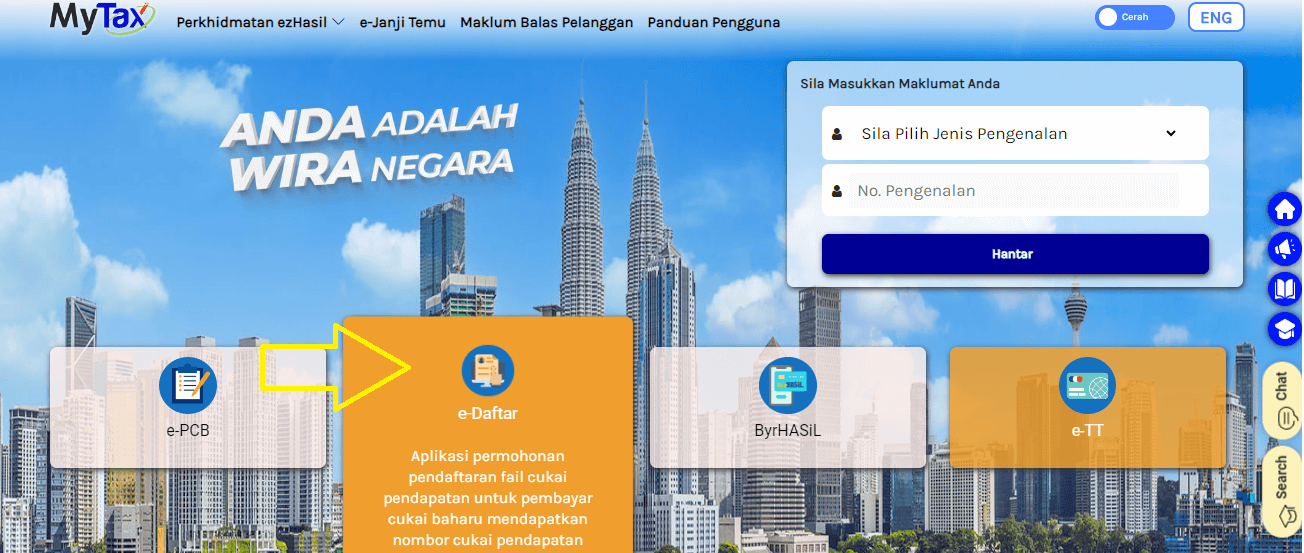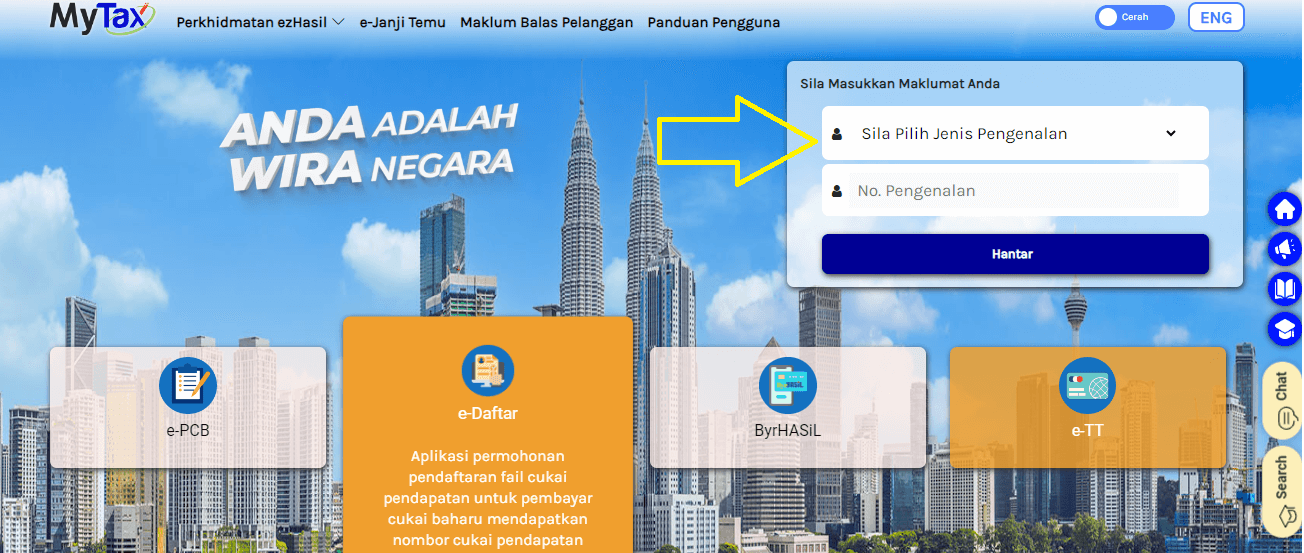
Tax Identification Number (TIN) in Malaysia: What It Is and How To Get Yours
Are You Hiring?
Find candidates in 72 Hours with 5+ million talents in Maukerja Malaysia & Ricebowl using Instant Job Ads.
HIRE NOW
Taxes – they're a part of life, but understanding them doesn't have to be rocket science. If you're in Malaysia, you might have heard of Tax Identification Numbers (TINs). But what are they, really? And how can you get yours?
In this article, we're going to break it down for you. Think of it as your go-to guide for all things TIN-related in Malaysia. Whether you're a seasoned taxpayer or just starting out, we've got you covered.
What is Tax Identification Number (TIN) in Malaysia?
In Malaysia, the Tax Identification Number (TIN), also known as the Income Tax Number, is a unique identifier assigned to individuals and entities registered with the Inland Revenue Board of Malaysia (IRBM). This number, comprising a TIN Code and a set of numbers, is essential for tax purposes. It helps the IRBM track taxpayers and manage their tax obligations effectively.
Purpose of Tax Identification Number (TIN) in Malaysia
A Tax Identification Number (TIN) is essential in Malaysia for several purposes:
- Tax Compliance and Reporting: Used to track tax payments, file returns, and claim deductions and tax reliefs.
- Unique Identification: Provides a unique number for individuals and businesses, aiding in identifying taxpayers for government grants, subsidies, and financial accounts abroad.
- Business Registration: Required for obtaining licenses and permits to operate.
- International Tax Cooperation: Facilitates information exchange between tax authorities to combat tax evasion.
- Automatic Exchange of Information: Key for identifying financial accounts held abroad under agreements like the CRS.
- Tax Treaties and Agreements: Helps determine residency status and ensures benefits under tax treaties.
Difference between TIN, ITN and NRIC
In Malaysia's tax system, the Tax Identification Number (TIN), Income Tax Number (ITN), and National Registration Identity Card Number (NRIC) each have specific roles but are interconnected:
- TIN (Tax Identification Number): Assigned by the Inland Revenue Board of Malaysia (IRBM), it serves as a unique identifier for taxpayers, crucial for tax compliance and reporting.
- ITN (Income Tax Number): A type of TIN specific to individuals for income tax purposes, comprising unique alphanumeric characters for each taxpayer.
- NRIC (National Registration Identity Card Number): Issued by the National Registration Department, it functions as an alternative identifier to the TIN, particularly within the Common Reporting Standard (CRS) framework.
Both the TIN and ITN are essential for tax compliance, enabling accurate tracking and reporting of tax obligations. The NRIC, while primarily serving as a national identity number, can also function as a TIN under the Common Reporting Standard (CRS), helping identify taxpayers with international financial accounts.
Who needs Tax Identification Number (TIN)?
Any company or individual falling into the following categories is required to obtain an income tax number:
- Individuals who are employed and subject to Monthly Tax Deductions.
- Taxpayers who are assessable and liable to pay tax.
- Taxpayers obligated to submit a tax return.
- Companies, businesses, trusts, or any other entity engaged in business activities within Malaysia.
Taxpayers encompass both individuals and entities such as companies, bodies of persons, and limited liability partnerships.
How to Register a TIN Number?
TIN can be obtained through the following registration methods:
(a) Via online through e-Daftar at the following link, https://mytax.hasil.gov.my or
(b) Submit the registration form to the nearest HASiL Branch.

How to Check Your TIN Number Online?
After registration, you can conveniently verify your TIN online through the LHDNM website at https://mytax.hasil.gov.my.
Upon reaching the MyTax homepage, you can log in by entering your NRIC and password. Subsequently, you will be directed to your personalized Tax Dashboard, where you can then view your TIN.
If a TIN cannot be retrieved through this channel, taxpayers can use the e-Daftar platform to initiate registration and obtain their respective TIN via the steps below:
1. Log in to MyTax Portal
2. Choose the e-Daftar option
3. Fill in the required fields (e.g., type of taxpayer, e-mail, and phone number / mobile number)
4. Click “Search” to register the taxpayer’s TIN

TIN Format and Example
The Tax Identification Number (TIN) in Malaysia serves as an alphanumeric identification, typically comprising 11, 12, or 13 characters. It consists of a combination of the file number type and the Income Tax Number.
TIN Format for Individuals
The current TIN format for Individuals begins with "IG." Previously, before 2nd January 2023, it started with "OG" or "SG." A 9–11-digit unique identifier follows the "IG" prefix.
Example: IG845462070, IG57303584070
TIN Format for Companies and Non-Individuals
For companies and other entities, the TIN starts with a specific alphabet code (one or two letter), indicating the nature of the entity, followed by a 10 or 11-digit unique number. Here are the respective characters representing different entity categories:
- Companies: C
- Cooperative Societies: CS
- Partnerships: D
- Employers: E
- Associations: F
- Non-Resident Public Entertainers: FA
- Limited Liability Partnerships: PT
- Trust Bodies: TA
- Unit Trusts/Property Trusts: TC
- Business Trusts: TN
- Real Estate Investment Trusts/Property Trust Funds: TR
- Deceased Person’s Estate: TP
- Hindu Joint Families: J
- Labuan Entities: LE
Update Effective 2nd January 2023: A "0" is added after every TIN number for non-individual entities to standardize the format.
Example:
- Company: C20830570210
- Cooperative Societies: CS1234567890
Documents Required for TIN Application
The category-wise list of documents required to obtain a TIN in Malaysia is detailed below:
| No | Category | Supporting Documents |
|---|---|---|
| 1 | Resident Individuals |
A. Identification cards such as New Identity Card, Army ID, Police ID, or Passport. B. Business registration certificate (for individuals with business income). |
| 2 | Non-Resident Individuals |
A. Copy of Passport. B. Business registration certificate (for individuals with business income). |
| 3 | Companies (Malaysian and Foreign) | A. Certificate of incorporation for Malaysian companies or Certificate of registration for foreign companies. B. Return with details of directors, managers, and secretaries, and changes of particulars for Malaysian companies. C. Return with details of directors and changes of particulars for foreign companies. |
| 4 | Other Applicants (Cooperative Societies, Partnerships, Associations, Trusts, LLPs, etc.) |
A. Copy of registration certificate for cooperative societies and a list of committee members. B. Copy of Partnership registration certificate and list of partners/copy of business profile. C. Copy of registration certificate for associations and a list of committee members, their IDs, and residential addresses. |
Need someone to manage your payroll or tax matters with LHDN for your employees?
Let A Job Thing streamline your hiring process and save you time!
AJOBTHING: Your All-in-One Hiring Solution
With AJOBTHING, you get everything you need for hiring in one place. Our HR libraries are packed with helpful resources, and our recruiter advice is personalized to your hiring needs. No more juggling multiple platforms. With AJOBTHING, everything you need is in one convenient place. Join us today and see how we can make hiring simpler and more effective for you.
Urgently seeking candidates to hire?
Look no further! AJobThing offers an effective hiring solution with our instant job ad feature. Hire in just 72 hours! Try Now!
Read More on AJobThing:
- Career Fair Recruitment Strategy: Benefits and Employer Planning Guide
- Tips for Interviewer: How to Prepare and Conduct a Virtual Interview
- Key Performance Indicator (KPI): Definition, Types, Dashboard, Criteria and Examples
- EPF Account 3 (Akaun Fleksibel): A Quick Guide to EPF Account Restructuring
- E-Invoicing Malaysia: A Comprehensive Guideline for Business




